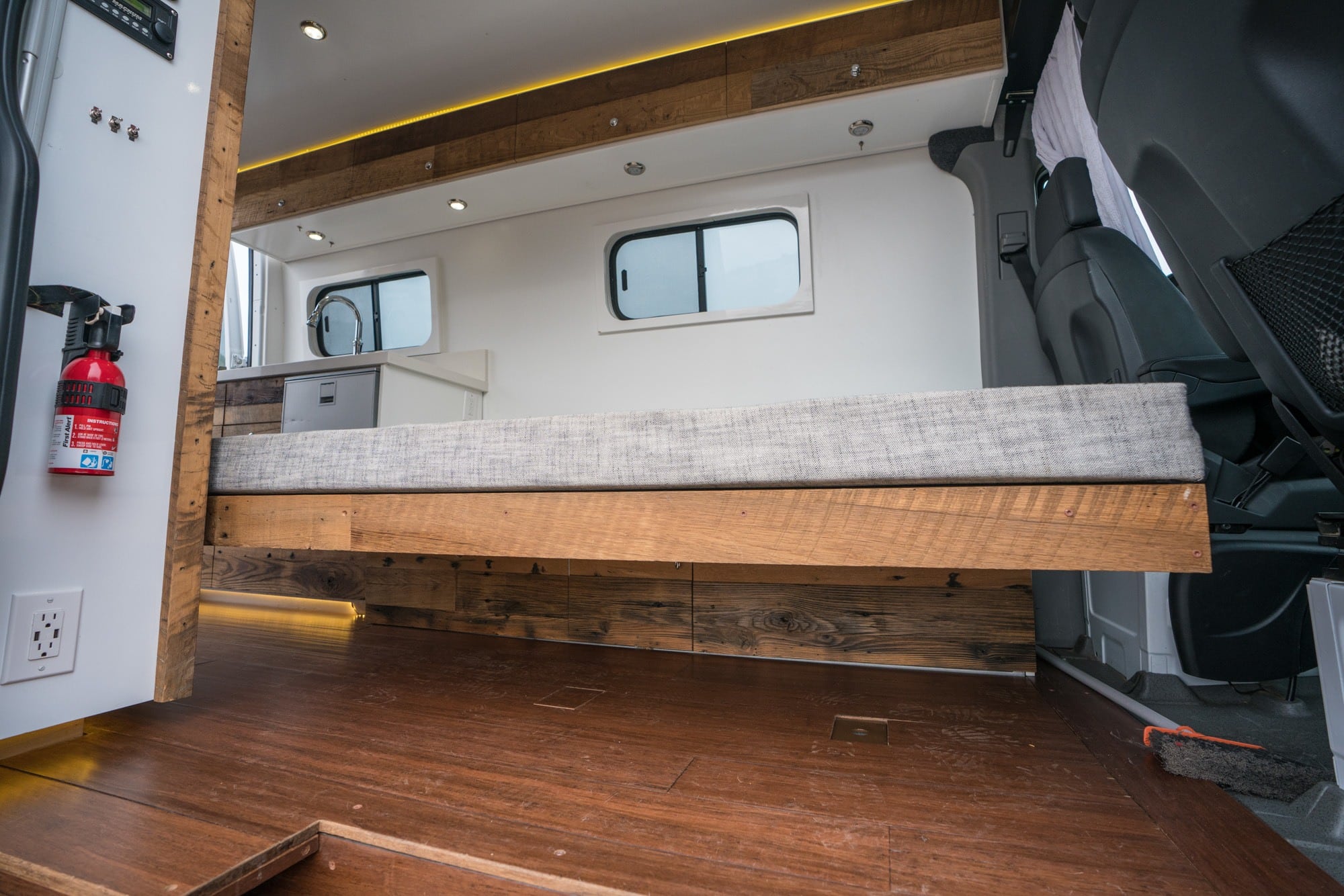
Transforming your Sprinter commercial van doesn’t have to break the bank. Several budget-friendly upgrades can enhance both the functionality and aesthetics of your van.
Here are five cost-effective ways to upgrade your Sprinter camper van:
DIY Interior Lighting: Upgrading the interior lighting can dramatically change the ambiance of your camper van. Consider installing LED strip lights along the ceiling or under cabinets for a warm and inviting glow. LED lights are energy-efficient, easy to install, and come in various colors, allowing you to customize the lighting to suit your preferences. Additionally, battery-operated LED puck lights can be a convenient and affordable solution for illuminating specific areas.
Curtains or Reflectix Window Coverings: Window coverings not only provide privacy but also contribute to insulation within the van. For a budget-friendly option, consider making your curtains or shades using inexpensive fabric or Reflectix insulation. Reflectix is a reflective foil insulation that can be cut to fit the windows, helping to regulate the interior temperature by blocking sunlight and retaining warmth. This simple upgrade enhances comfort and privacy in your camper van.
DIY Storage Solutions: Maximize your storage space with DIY solutions. Utilize stackable storage bins, hanging organizers, and under-bed storage to keep your belongings organized and easily accessible. You can repurpose household items like shoe organizers, hanging shelves, or tension rods to create additional storage pockets for small items. A well-organized interior not only improves functionality but also enhances the overall comfort of your living space.
Vinyl Flooring or Area Rugs: Enhance the flooring of your Sprinter camper van with budget-friendly options. Vinyl flooring is an affordable and easy-to-install choice that is durable and easy to clean. Alternatively, consider adding area rugs to sections of the floor to create a cozy and homey atmosphere. Rugs are not only decorative but also provide insulation and comfort for your feet.
DIY Magnetic Bug Screens: Enjoy the fresh air without dealing with pesky insects by creating your magnetic bug screens for windows and doors. Purchase magnetic tape and attach it to the edges of lightweight mesh fabric, creating a screen that can easily be attached and detached as needed. This budget-friendly solution allows you to keep the doors and windows open, promoting ventilation while keeping insects out.
These budget-friendly upgrades can significantly improve the comfort, functionality, and aesthetics of your Sprinter camper van without a substantial financial investment. Whether you’re focusing on lighting, window coverings, storage solutions, flooring, or bug protection, each upgrade contributes to creating a more enjoyable and personalized living space on the road.








